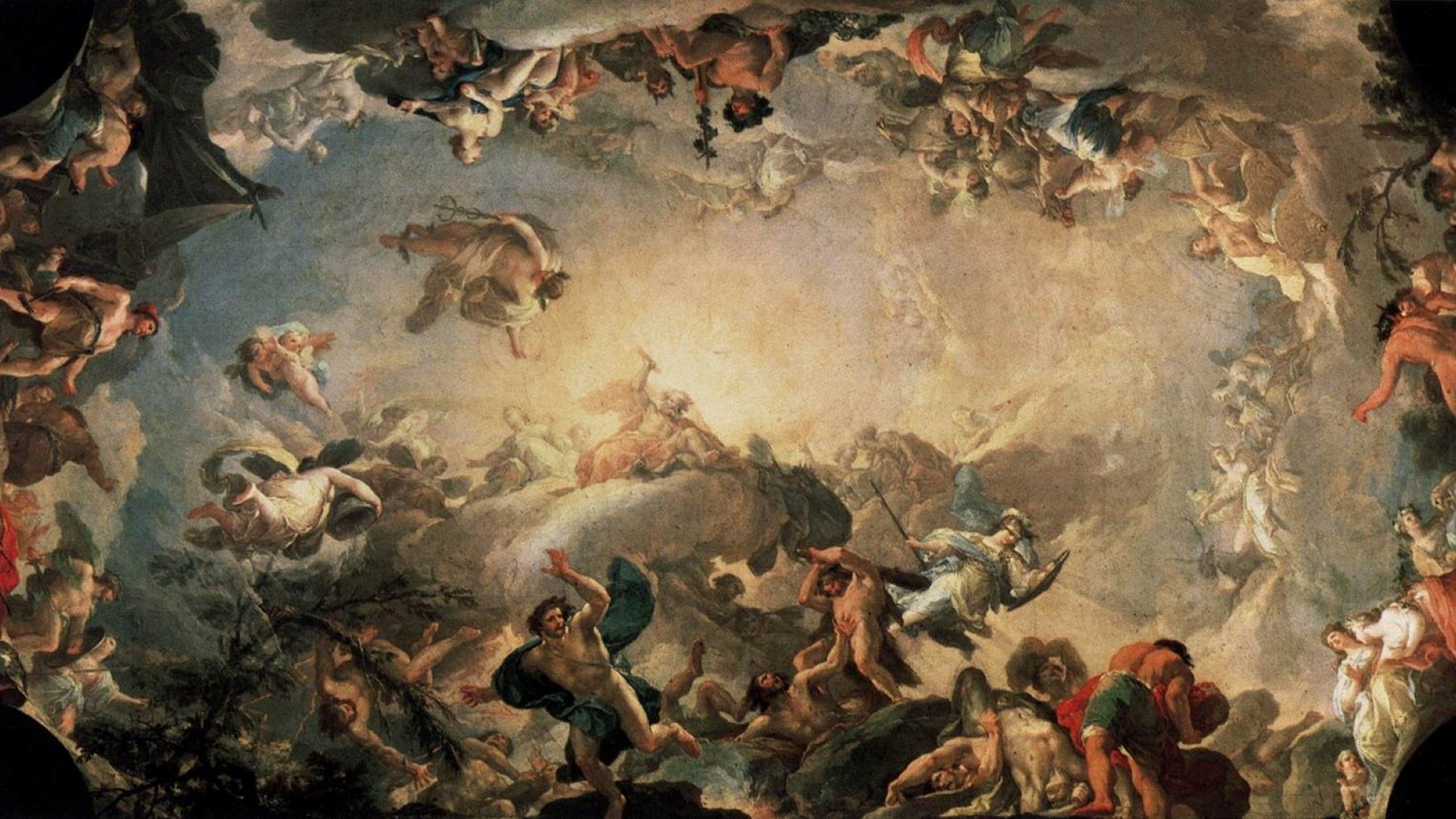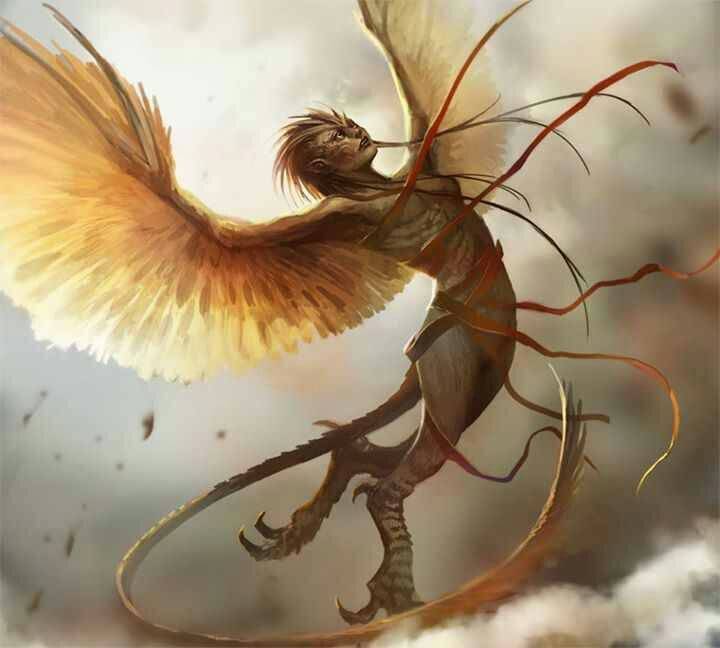
Harpies

The dreadful, winged messengers of Hades
These winged spirits whose name literally means: "that which snatches" are known for their proclivity for stealing food.
In fact, Zeus used them to punish a king called Phineus by trapping him on an island with a bunch of food and a large group of harpies.
Phineus was constantly tortured by a buffet he could never eat because it always got stolen away.
King Phineus of Thrace was given the gift of prophecy by Zeus. Angry that Phineus gave away the god's secret plan, Zeus punished him by blinding him and putting him on an island with a buffet of food which he could never eat because the harpies always arrived to steal the food out of his hands before he could satisfy his hunger, and befouled the remains of his food. This continued until the arrival of Jason and the Argonauts.
The Boreads, sons of Boreas, the North Wind, who also could fly, succeeded in driving off the harpies, but without killing any of them, following a request from Iris, who promised that Phineus would not be bothered by the harpies again. "The dogs of great Zeus" returned to their "cave in Minoan Crete". Thankful for their help, Phineus told the Argonauts how to pass the Symplegades.
In this form they were agents of punishment who abducted people and tortured them on their way to Tartarus. They were vicious, cruel and violent. They lived on the islands of the Strophades. They were usually seen as the personifications of the destructive nature of wind. The harpies in this tradition, now thought of as three sisters instead of the original two, Hesiod's two Harpies are named Aello ("storm swift") and Ocypete ("the swift wing"),Virgil's added Celaeno ("the dark") as a third. Homer knew of a Harpy named Podarge ("fleet-foot").
Aeneas encountered harpies on the Strophades as they repeatedly made off with the feast the Trojans were setting. Celaeno utters a prophecy: the Trojans will be so hungry they will eat their tables before they reach the end of their journey. The Trojans fled in fear.
Harpies remained vivid in the Middle Ages. In his Inferno, XIII, Dante envisages the tortured wood infested with harpies, where the suicides have their punishment in the seventh ring of Hell:
Here the repellent harpies make their nests,
Who drove the Trojans from the Strophades
With dire announcements of the coming woe.
They have broad wings, with razor sharp talons and a human neck and face,
Clawed feet and swollen, feathered bellies; they caw
Their lamentations in the eerie trees.
William Blake was inspired by Dante's description in his pencil, ink and watercolour "The Wood of the Self-Murderers: The Harpies and the Suicides" (Tate Gallery, London).
Our Mobile Application
Check out Our Mobile Application "Ancient Greece Reloaded"


